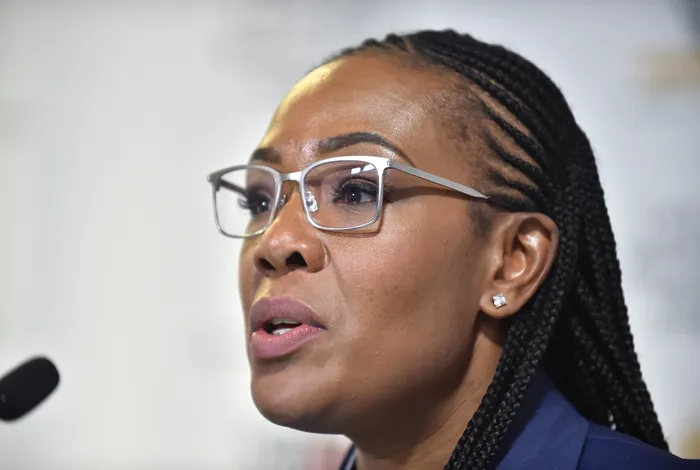Auditor-General highlights rampant R1bn irregular expenditure in Johannesburg
AUDITING

Auditor-General Tsakani Maluleke pointed out that the malpractice observed in Johannesburg is not an isolated issue, but part of a broader trend seen across major municipalities in South Africa.
Image: Thobile Mathonsi / Independent Newspapers
The Auditor-General Tsakani Maluleke has drawn attention to the alarming reality of irregular expenditure within the City of Johannesburg (CoJ), revealing that the municipality was leading the nation in this regard with contracts exceeding R1 billion awarded to contractors with connections to officials.
In a webinar hosted by the Centre for Development and Enterprise (CDE) Conversations, Maluleke pointed out that the malpractice observed in Johannesburg is not an isolated issue, but part of a broader trend seen across major municipalities in South Africa.
However, she said a concerning aspect of this issue related to existing National Treasury regulations that allow municipalities to pay start-ups in advance for transactions not exceeding R2 000. She highlighted that these regulations may unintentionally facilitate corrupt practices within the CoJ.
"The CoJ has high irregular expenditure year-on-year and it does not seem to be a situation that is getting under control. So it raises questions about whether the Council, the Speaker, the Mayor are decisive," Maluleke said.
"It is undesirable, it raises a series of conflicts. It raises the question if the contract is in the interest of the city or in the interest of the the individual concerned."
Maluleke emphasised that while the law did not expressly prohibit municipalities from engaging in transactions with family members of councillors or employees, there was a vital obligation to disclose such dealings, particularly when they exceed R2 000.
"We have got to look at different players in the ecosystem of accountability and our analysis is local government is a different sphere of government from provincial and national government, but they are not meant to be autonomous," she said.
"They are not meant to operate as islands. These are public resources. We find too many municipalities do things that nobody hold them accountable for. And then they all wait for the AG to come every year they all lament and then we start the thing again next year."
Maluleke said her experience in recent years showed that when accounting officers faced scrutiny, they were often transferred, creating instability that hampers accountability.
"Our experience in the last few years is that accounting officers where we are zeroing-in to issue a certificate of debt, they get moved around and because we dont hire or fire them," she said.
"What you find is that a Council will keep that role very unstable, make someone act for six months another one for six months. It just delays the process. So it might delay the AG but worse of all it continues to weaken the institution. It must often be deliberate."
Maluleke said accounting officers too often did not go into the details of the plans that they sign off on.
"All too often they don't do that. They might tick a box and say we have seen the plan, but you never seen evidence of suggestions that should be amended so that there is coherence for a province," she said.
"No wonder then some of the plans are cut and paste jobs by consultants, and yet they pass and then when they are being implemented, all manner of adjustments are made during the year, which runs into a different costs far way above what it should have cost.
"We have got to ask where is the provincial legislature when we have gone into this. We find some of them did not know they were supposed to get certain reports let alone look at them. Sometimes they get them bit did not do anything with them.
"I believe we must be much more impatient with municipal leadership that simply does not submit financial statements because these are public funds. And so the very least you can do, whether or not the statements are credible, is to submit them. It's something we should never tolerate, that and disclaimers is something we must leave behind. 30 years into democracy that should not be our experience."
BUSINESS REPORT